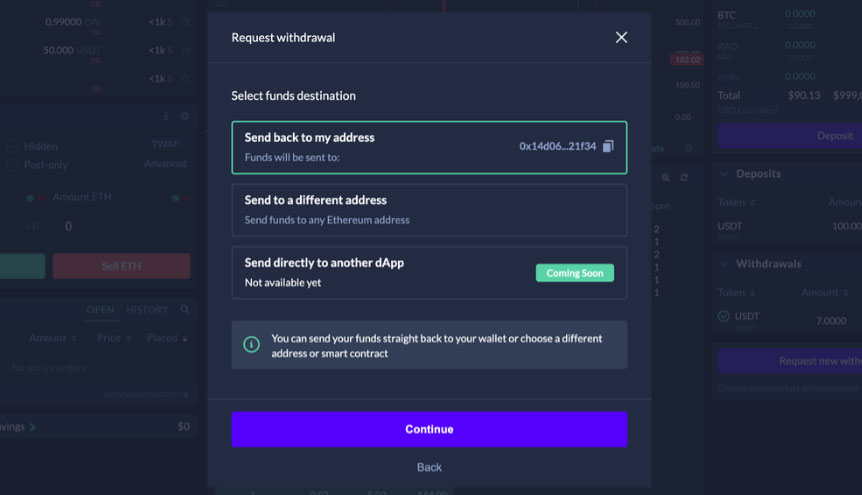DeversiFi, an Ethereum-based crypto trading/exchange ecosystem, today announced it has collaborated with StarkWare to use, for the first time; a new type of L2 transaction known as a ‘conditional transfer’ – which makes possible interoperability between L2 and L1 Ethereum.
“We believe that conditional transfers will become one of the most important building blocks over the next year as DeFi begins to migrate over to L2s. The Ethereum community is rightly excited at the moment about L2s, but whether we are speaking about zk roll-ups, validiums, or optimistic roll-ups, interoperability between different applications and with Layer 1 is still a challenge that the ecosystem will need to overcome in order for DeFi to migrate.”
– The DeversiFi Team
How DeversiFi’s fast withdrawals functionality works:
The DeversiFi platform has enabled close to instant withdrawals using two components:
- A new ‘conditional transfer’ transaction type, verified as part of the proof.
- A liquidity provider (which in this case is the same as the operator but in the future could be a pool of users earning fees).
What else could the conditional transfer building block be used for?
According to the DeversiFi team, the most obvious use case for conditional transfers is to send funds directly to a regular Ethereum address on L1.
However, ultimately the ‘fact’ that is being registered on-chain in the Registry contract can attest to ANY type of transaction. The StarkEx verifier contract is able to therefore check any range of conditions attached to transfers.
Some examples include:
- Deposits directly into Tornado Cash
- Deposits into Compound or Aave
- Arbitrage trades on L1 DEXs – note this enables aggregation and no-risk arbitrage between DeversiFi liquidity and i.e. Uniswap liquidity
- Direct transfers between different L2s, i.e. Loopring and DeversiFi
- Staking into ETH2

A couple of weeks ago, DeversiFi, introduced Simple Swaps; a function that allows users to swap between any tokens listed on DeversiFi simply, instantly, and without paying any damaging network fees.






















